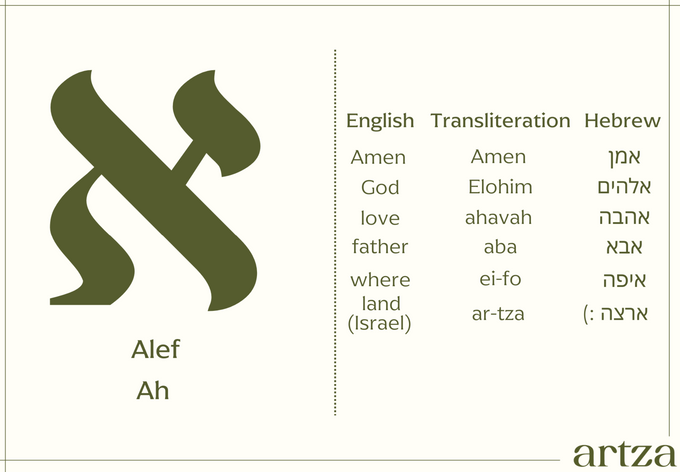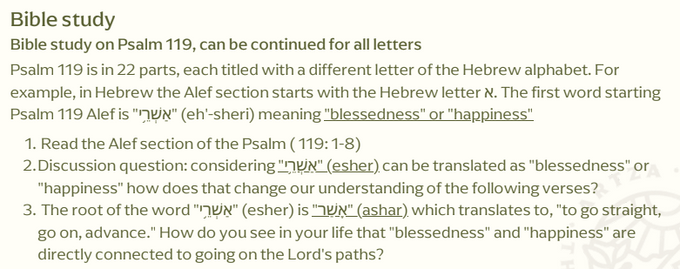10 Important Reasons Why Christians Should Study Hebrew
Hebrew for Christians? Have you ever wondered why Christians should study Hebrew, or perhaps, you’ve considered learning it?
Updated August 5, 2024.

Guest contribution: Susan Nelson - Woman of Noble Character
There are many benefits for Christians to learn biblical Hebrew. I’ll share just ten below.
10 Benefits of Studying Hebrew
1. It is Considered the Holy Language
Hebrew is the original language of the Bible. It is called the “Holy Language” (lashon ha’kodesh). Hebrew is the language in which the Lord spoke the Torah to Moses, and it is also the language in which the prophets shared their revelations.
If you want to know the Old Testament (Tanakh in Hebrew) better, you will want to study Hebrew.
2. Jesus Knew and Spoke Hebrew
Jesus both spoke and read Hebrew.
And when we had all fallen to the ground, I heard a voice saying to me in the Hebrew language, ‘Saul, Saul, why are you persecuting me? It is hard for you to kick against the goads.’ – Acts 26:14
And he came to Nazareth, where he had been brought up. And as was his custom, he went to the synagogue on the Sabbath day, and he stood up to read. And the scroll of the prophet Isaiah was given to him. He unrolled the scroll and found the place where it was written,
And he rolled up the scroll and gave it back to the attendant and sat down. And the eyes of all in the synagogue were fixed on him. Luke 4:16-20
Hebrew is the foundational language of the New Testament. In fact, all the original authors of the New Testament were Jews who spoke and read Hebrew.
And when he had given him permission, Paul, standing on the steps, motioned with his hand to the people. And when there was a great hush, he addressed them in the Hebrew language, saying: – Acts 21:40
And when they heard that he was addressing them in the Hebrew language, they became even more quiet. And he said: – Acts 22:2 (ESV)
As a Christian, learning Hebrew will give you new insight into the meaning and context of the New Testament.
Many Christians have traveled or desire to travel to the Holy Land, and having a basic understanding of the Hebrew language would be of great benefit if traveling to Israel.
It would be an amazing experience to learn the same language and study the very scriptures that Jesus did!
Although Aramaic was the language he would have probably spoken, Hebrew was the language of the synagogues in Jesus’ time as it is today. Since Jesus was raised in a Jewish home, he would have learned the Torah (the first five Old Testament books) in Hebrew, as all Jewish boys did. He was conversing with religious leaders in the synagogue, in Hebrew, when he was twelve years old (Luke 2:39-52)!
3. Hebrew Was and Is the Language of the Synagogue
During Jesus’ time on earth, the Torah was regularly read at the synagogues.
In fact, throughout the over 2,000 years since even before Christ was born, the study and recitation of Hebrew have helped unite the Jewish people with a common form of expression and worship. Jews have been praying the same blessings, chanting the same Scriptures, and studying the same texts for literally thousands of years. Studying Hebrew will help you appreciate the Jewish roots of Christianity and make you a more understanding witness to the Hebrews.
4. God is the God of Both Jews and Christians
If God sent his Son to save all the people of the world, then the gospel is for all people.
There is neither Jew nor Greek, there is neither slave nor free, there is no male and female, for you are all one in Christ Jesus. – Galatians 3:28 (ESV)
Heaven will include people from all cultures and languages, then why would he inspire the writing of a Bible that could only be read by certain people many years ago? God inspired the original writings and the translation of those languages. After this I looked, and behold, a great multitude that no one could number, from every nation, from all tribes and peoples and languages, standing before the throne and before the Lamb, clothed in white robes, with palm branches in their hands, – Revelation 7:9
5. Learning Hebrew Helps Us to Understand the Scriptures Better
Anytime you translate between languages, some words or phrases will be “lost in translation.” For example, in Hebrew, shalom is the word for peace. But it means so much more than that. Its full Hebrew meaning covers completeness, welfare, prosperity, perfection, soundness, safety, health, and more.
However, when translated into English, nearly everywhere it appears in the bible, it is simply translated as “peace.” We can’t blame the Bible translators. Most are well-educated and have deep knowledge of Hebrew and English to ensure the correct meaning is used. The problem is that there are great differences between the two languages.
Another potential issue in translation is the way that the translator translates or what they believe the correct translation to be. It can be subjective.
“Therefore the Lord, the God of Israel, declares: ‘I promised that your house and the house of your father should go in and out before me forever,’ but now the Lord declares: ‘Far be it from me, for those who honor me I will honor, and those who despise me shall be lightly esteemed.” 1 Samuel 2:30 (ESV) bold, mine
And compare it to:
“Therefore, this is the declaration of the Lord, the God of Israel: ‘I did say that your family and your forefather’s family would walk before me forever. But now,’ this is the Lord’s declaration, ‘no longer! For those who honor me I will honor, but those who despise me will be disgraced.” – 1 Samuel 2:30 (CSB) bold, mine
They are close but certainly different.
If, however, we look at the original Hebrew, the root word for disgraced or lightly esteemed, in Hebrew, it is qalal, which includes both lightly esteemed and disdained but also trifling, treated with contempt, dishonored, cursed, and insignificant. Neither of the above translations is technically wrong, but neither fully conveys the word's deeper meaning.
The Christian student of the Hebrew language will shed light on this inevitable confusion. By learning to understand Hebrew – both the word meanings and how the words relate to the context, one gains a greater overall understanding of the scriptures in relation to their original intended language.
6. To Better Understand Jewish Culture
Hebrew is the only ancient language to continue to be a modern spoken language. Today Hebrew still serves as the language of Judaism around the world and is also the official language of the state of Israel.
Learning Hebrew for Christians will help you to appreciate better modern Jewish culture and the people living in Israel. It will also help you to understand the culture and customs of your Jewish friends and neighbors.
In addition, do you recall certain saying by your parents or grandparents? For example, one hand washes another or “takes the cake.” These are called idioms.
There are many Hebrew idioms or sayings in the bible. Martin Luther calls these expressions “Hebraisms” or “Hebrew expressions.”
By translating from the Hebrew word for word, the meaning of some of these expressions understood in Jewish culture is lost. Here’s an example from Exodus 3:8: and I have come down to deliver them out of the hand of the Egyptians and to bring them up out of that land to a good and broad land, a land flowing with milk and honey, to the place of the Canaanites, the Hittites, the Amorites, the Perizzites, the Hivites, and the Jebusites. – Exodus 3:8 (ESV) bold, mine God tells the Israelites that he will bring them to a good land, a “land flowing with milk and honey.” Clearly, the land isn’t flowing literally with milk and honey but rather is a land with good and fertile soil for them.
There are many others, but we’ll look at just one more. In Romans 12:20, Paul uses an idiom from Hebrew culture when he quotes Proverbs 25:21-22.
To the contrary, “If your enemy is hungry, feed him; if he is thirsty, give him something to drink; for by so doing you will heap burning coals on his head.” – Romans 12:20 (ESV) bold, mine
In our modern culture, heaping burning coals on someone’s head will get you thrown in jail. It’s not a literal phrase, however. It is simply overcoming evil with good. Throughout scripture, we read many times that God wants us to love even our enemies.
Finally, scripture is filled with poetry and song. However, the structure of poetry and song is lost in the translation from Hebrew to English. A good bit of the Old Testament was written in song or poem form to help with the memorization of scripture or clarify concepts. This structure is lost when these scriptures are translated into English, where the verses then lose their form or cadence.
Learning Hebrew for Christians will help you to discover the deeper meaning of God’s Holy Word beyond a simple translation.
7. To Gain Deeper Understanding During Your Bible Study
Another reason why Christians should study Hebrew is to make you a better student of the Bible. Both the Old and New Testaments are unmistakably Jewish. The authors of the books of scripture were all Jews who knew not just the Hebrew language but the ways of Jewish thinking.
One of the main reasons Christians should study Hebrew is that you cannot completely understand the meaning of the New Testament writers without understanding of the Hebrew mindset that underlies their message.
Many issues in doctrine arise because non-Jews have imposed a Western mindset into Jewish-written Scriptures.
8. To Better Understand Jewish Concepts and Other Writing
This relates to a better understanding of Jewish culture. However, learning biblical Hebrew will also help you to appreciate the struggle of the Jewish people through history and help you to sympathize with their circumstances and plight.
Additionally, as a Christian studying Hebrew, you will understand the importance of Shabbat, the Jewish Holidays, and how they are best understood from a Messianic perspective.
9. To Strengthen our Relationship with God.
As Christians, our greatest priority is to have a relationship with our Heavenly Father. As we study His Word, we learn of His character and walk in closer fellowship with Him.
Since the Bible, written in Hebrew, is where we learn of Him, we should be earnest students of it. In order to understand its truth, learning Hebrew for Christians will assist us in learning in a deeper, more meaningful way.
New LinkWe could read and study the Bible every day, but by learning Hebrew for Christians, we could grow in His Word in a way we couldn’t if we didn’t study biblical Hebrew.
Learning Hebrew, as a Christian, allows us to incorporate the insight of the Hebrew language and phrases into our studies.
To deepen our understanding of the Bible, we must immerse ourselves in the study of it. This is a primary reason why Christians should study Hebrew.
10. To Grow as a Christian Leader
Most Christian leaders and Pastors who honor the Scriptures encourage their flock to examine scripture in the Hebrew text.
Even Martin Luther wrote: “The Hebrew language is the best language of all … If I were younger, I would want to learn this language, because no one can really understand the Scriptures without it. For although the New Testament is written in Greek, it is full of Hebraisms and Hebrew expressions. It has therefore been aptly said that the Hebrews drink from the spring, the Greeks from the stream that flows from it, and the Latins from a downstream pool.”
Be it a blogger, Pastor, or ministry leader, learning Hebrew for Christians will greatly enhance your own understanding of the scripture and allow you to share it more effectively with others.
One Final Note on Why Christians Should Study Hebrew.
Jesus told his disciples that not one “jot” or “tittle” will pass away from the Law until all is fulfilled.
“For assuredly, I say to you, till heaven and earth pass away, one jot or one tittle will by no means pass from the law till all is fulfilled.” – Matthew 5:18 (NKJV)
The word “jot” (or iota in the Greek New Testament) refers to the smallest Hebrew letter, which is “Yod.” The word “tittle” (keraia in Greek) refers to the “horn,” which is the smallest stroke of a Hebrew letter. (This would be like the serif of a current typeface).
If even the tiniest stroke of the smallest letter of the Hebrew alphabet was important to Jesus, and if we, as Christians, revere the Scriptures as He did, it would also be important for us to take care to pay attention to even the smallest details of scripture.
However, how can we even know what a “jot” or a “tittle” is without having studied the original Hebrew text?
I sincerely pray that you will ask God if He desires you to learn biblical Hebrew..
Are you ready to learn Hebrew for Christians? I have a fantastic resource for you, from serious to fun and from light to intense.
Hebrew Letters and Bible Study with Artza Box and Woman of Noble Character
Bi-weekly on a Thursday morning (with the replay sent immediately after for those that can’t make it), we study Hebrew letters, words, play learning games and dive into Bible study to help us gain a deeper understanding of the text. Occasionally, we have Israeli cooking demonstrations and learn about Hebrew culture. It is a fabulous class with great testimonials.







